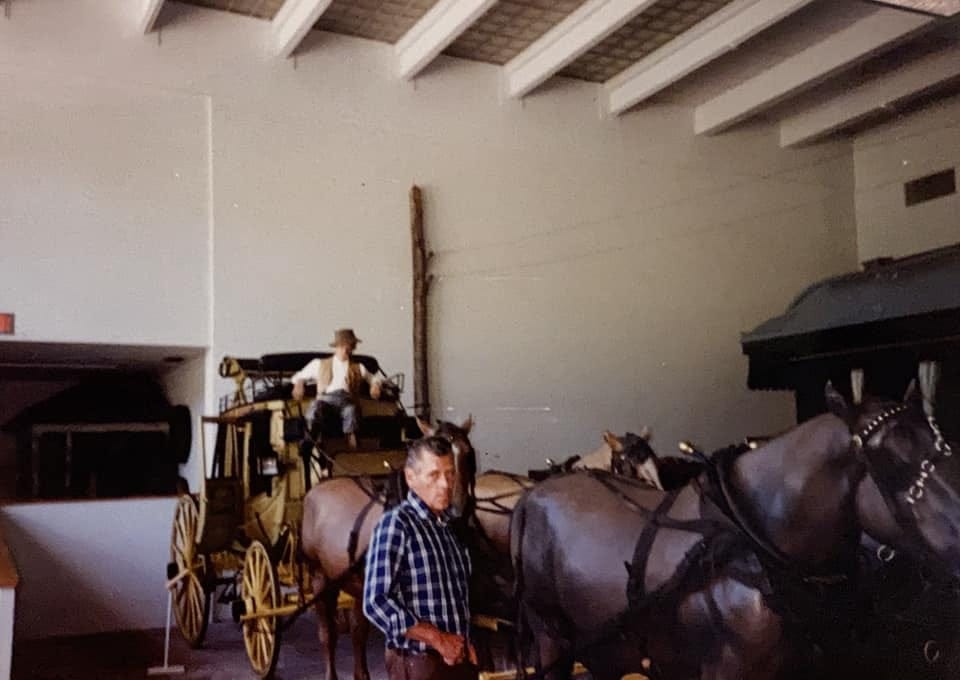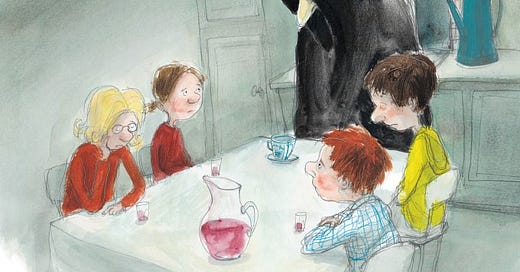Dear Friends,
What a week! As I shared with you all last week, I began a new role as the Sunday School Director at St. John the Evangelist in Hingham, MA, so I am living in a holy whirlwind. Amidst all that, though, I am thoughtful, having begun this call during the Triduum of Allhallowtide. And, while we are beyond the sequential days of these observations, from the perspective of the Circle of the Church Year, we are still in the midst of it all.
And so, this Sunday we mark All Souls, a day which my wise and funny rector Fr. Tim Schenck helps distinguish for children and adult parishioners alike as when we remember your Aunt Mary, versus All Saints, when we remember Saint Mary. Though we can and should, of course, find ways to mark all the important days on the Church calendar in our home lives, All Souls is one with particular potential because its power rests in stories rooted in personal relationships.

As we enter into the celebration of All Souls in our congregations this week, we have the opportunity to have hard and beautiful conversations in our homes. As parents or caregivers or even teachers, this is an opportunity to talk to children about that narrow place between life and death. I am the only one of my sisters, for example, who really remembers our maternal grandfather, pictured above. Poppy died when I was 14; my middle sister was 3 and my youngest not yet born. I am the one who holds the stories and remembrances and that is a gift.
I admit, in light of COVID, this may be one of the harder years to step into the act of talking about loss, but it may also be one of the most necessary times, and you don’t have to feel like you have all the answers. None of us do, and talking about the lives of those we’ve lost is at least as important as trying to explain the mysterious nature of death. Tell the stories. Light a candle. Change the light and watch how it fills the room. Our lost loves ones are like that smoke that dissipates, with us in that treasured but invisible way.
There will always be some children more worried by death or who have more questions about it, a reality that comes up frequently in formation communities. I certainly was one of those children, and this was a curiosity allowed to me without judgement or worry when I was young, helping to plan a great-great-aunt’s funeral at seven years old – the aunt of the grandfather pictured above, a German immigrant who fascinated me. I chose the dress she wore when she was buried, a gentle blue against her pale skin.
What else can help you navigate the space of death? These books are perennial favorites:
Death Is Stupid by Anastasia Higginbotham: One of Higginbotham’s remarkable “Ordinary Terrible Things” series, this book refuses the simplicity of declaring our loved ones move on to “a better place” and instead acknowledges the real emotions that live in proximity to death: sadness, anger, confusion, fear. For a child – and for adults – it’s easy to feel that death is not normal or natural or relief from suffering for the sick, but ultimately stupid and pointless and something we would rather wish away.
The Invisible String by Patrice Karst: The Invisible String isn’t just a book about death. It’s also about separation and anxiety and moving away and all the different things that make us feel sad and lonely and afraid. It’s also a perfect complement to the Godly Play-based candle practice described above: just as the light disappears but continues to surround us, the invisible string of love connects us to those we are missing.
Cry Heart, But Never Break by Glenn Ringtved: Cry Heart, But Never Break is a tough book because of how closely it confronts death and loss. In the home of a grandmother in her last days, death arrives and talk to the children. Death is kind and sympathetic and also honest with the children, as it comes closer to the time that this dark figure will take their grandmother away. This is the book I wish I had had when my grandfather died, even as a teenager, or as a child when my great-great-aunt died, because I was so physically close to their suffering. It is a book that is easy to shy away from, but one it would be wiser to embrace.

I recognize this is a heavy letter, carried on the back of my my return, but this is the space of the unavoidable and in the darkening fall days and cooling weather, we all feel the cycle of endings and beginnings approaching its annual close. And, at the same time, there is joy on the horizon. Soon, so soon, will be Advent and we will light the candles of new beginnings and celebrate the start of the new Church Year. When we live in the Circle, in the spiral of life and tradition, the ending is always with us, but so is the beginning. Death walks beside us, speaks kindly, but we are alive and in the name of remembrance, we hold every part of the spiral in our hearts.
May We Tell The Stories. May We Remember In Sadness & Joy, In The Both/And Of Grief –
A. Bird



